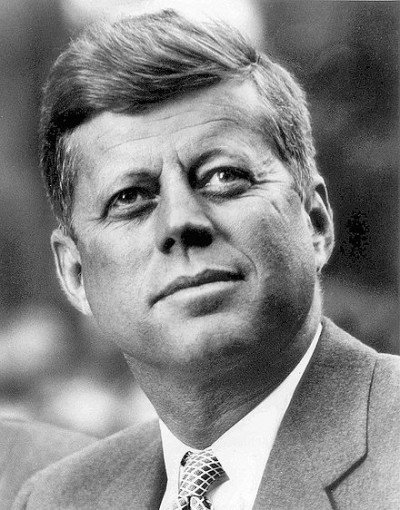The Historical Truth of the Assassination of John F. Kennedy

As author Jim Douglass distills this:
Because John Kennedy chose peace on earth at the height of the Cold War, he was executed. But because he turned toward peace, in spite of the consequences to himself, humanity is still alive and struggling. That is hopeful. Especially if we understand what he went through and what he has given to us as his vision.
At a certain point in his presidency, John Kennedy turned a corner and he didn’t look back. I believe that decisive turn toward his final purpose in life, resulting in his death, happened in the darkness of the Cuban Missile Crisis. Although Kennedy was already in conflict with his national security managers, the missile crisis was the breaking point.
At that most critical moment for us all, he turned from any remaining control that his security managers had over him toward a deeper ethic, a deeper vision in which the fate of the earth became his priority. Without losing sight of our own best hopes in this country, he began to home in, with his new partner, Nikita Khrushchev, on the hope of peace for everyone on this earth—Russians, Americans, Cubans, Vietnamese, Indonesians, everyone on this earth—no exceptions. He made that commitment to life at the cost of his own. What a transforming story that is.
And what a propaganda campaign has been waged to keep us Americans from understanding that story, from telling it, and from re-telling it to our children and grandchildren. Because that’s a story whose telling can transform a nation.
But when a nation is under the continuing domination of an idol, namely war, it is a story that will be covered up. When the story can liberate us from our idolatry of war, then the worshippers of the idol are going to do everything they can to keep the story from being told.
From the standpoint of a belief that war is the ultimate power, that’s too dangerous a story. It’s a subversive story. It shows a different kind of security than always being ready to go to war.
It’s unbelievable—or we’re supposed to think it is—that a president was murdered by our own government agencies because he was seeking a more stable peace than relying on nuclear weapons.
It’s unspeakable. For the sake of a nation that must always be preparing for war, that story must not be told. If it were, we might learn that peace is possible without making war. We might even learn there is a force more powerful than war. How unthinkable! But how necessary if life on earth is to continue.
That is why it is so hopeful for us to confront the unspeakable and to tell the transforming story of a man of courage, President John F. Kennedy. It is a story ultimately not of death but of life—all our lives. In the end, it is not so much a story of one man as it is a story of peacemaking when the chips are down. That story is our story, a story of hope.
From Article "After More than a Half Century: The Historical Truth of the Assassination of John F. Kennedy"